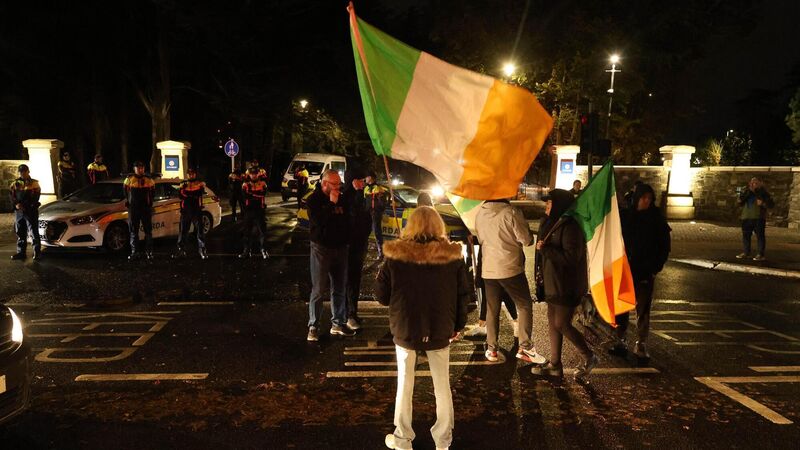You're not protecting women and children with violent protests

The protests at Citywest after the alleged assault of a young girl. Picture Colin Keegan/Collins
On October 20, there was an alleged sexual assault on a 10-year-old girl on the grounds of the Citywest Hotel in Dublin. A 26-year-old man has been charged in relation to the incident, and the judicial process is underway.
Violent protests spewing anti-migrant hatred have followed quickly, drawing crowds of more than 2,000, four times the number counted at the Dublin riots of 2023.















